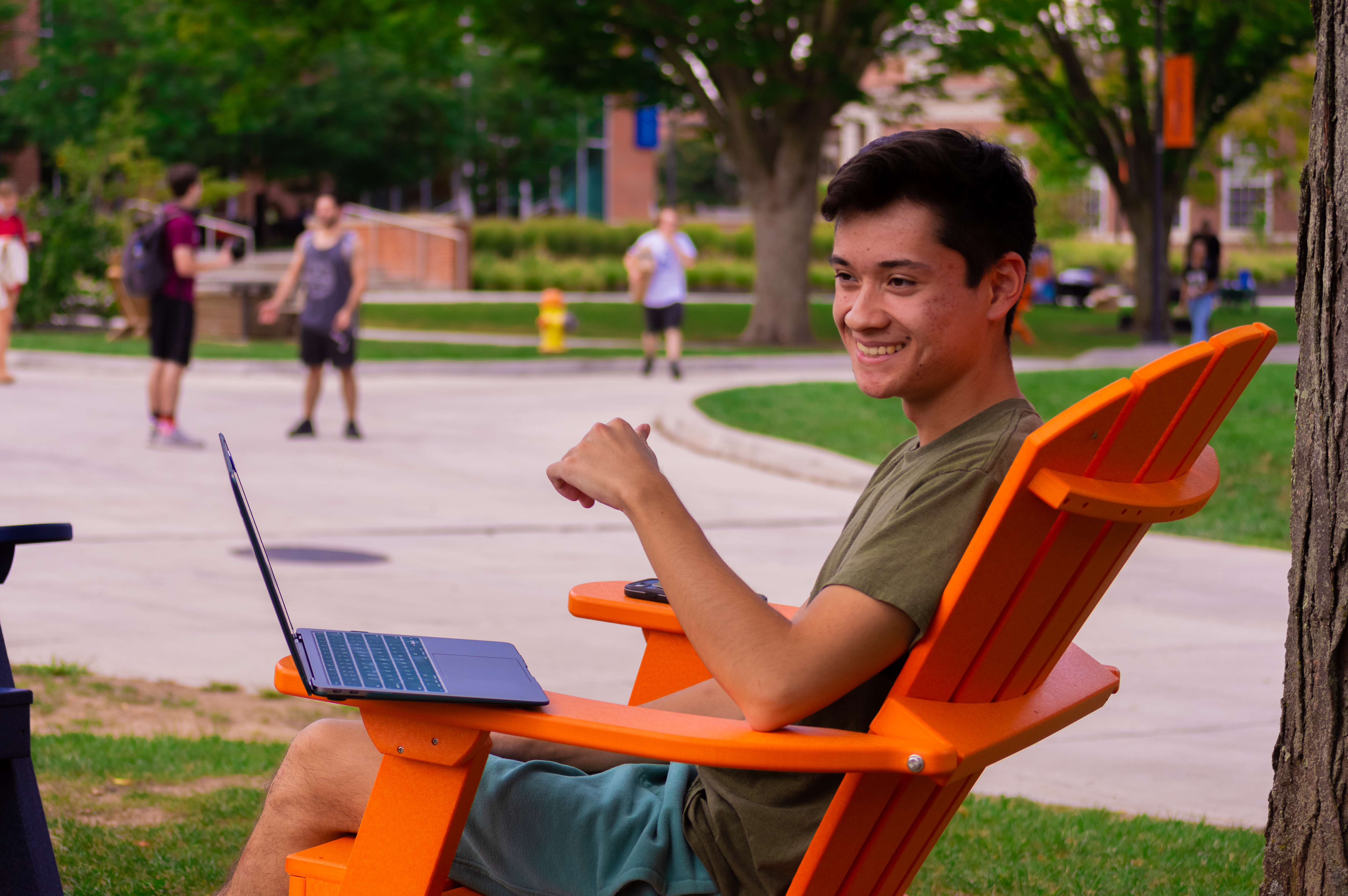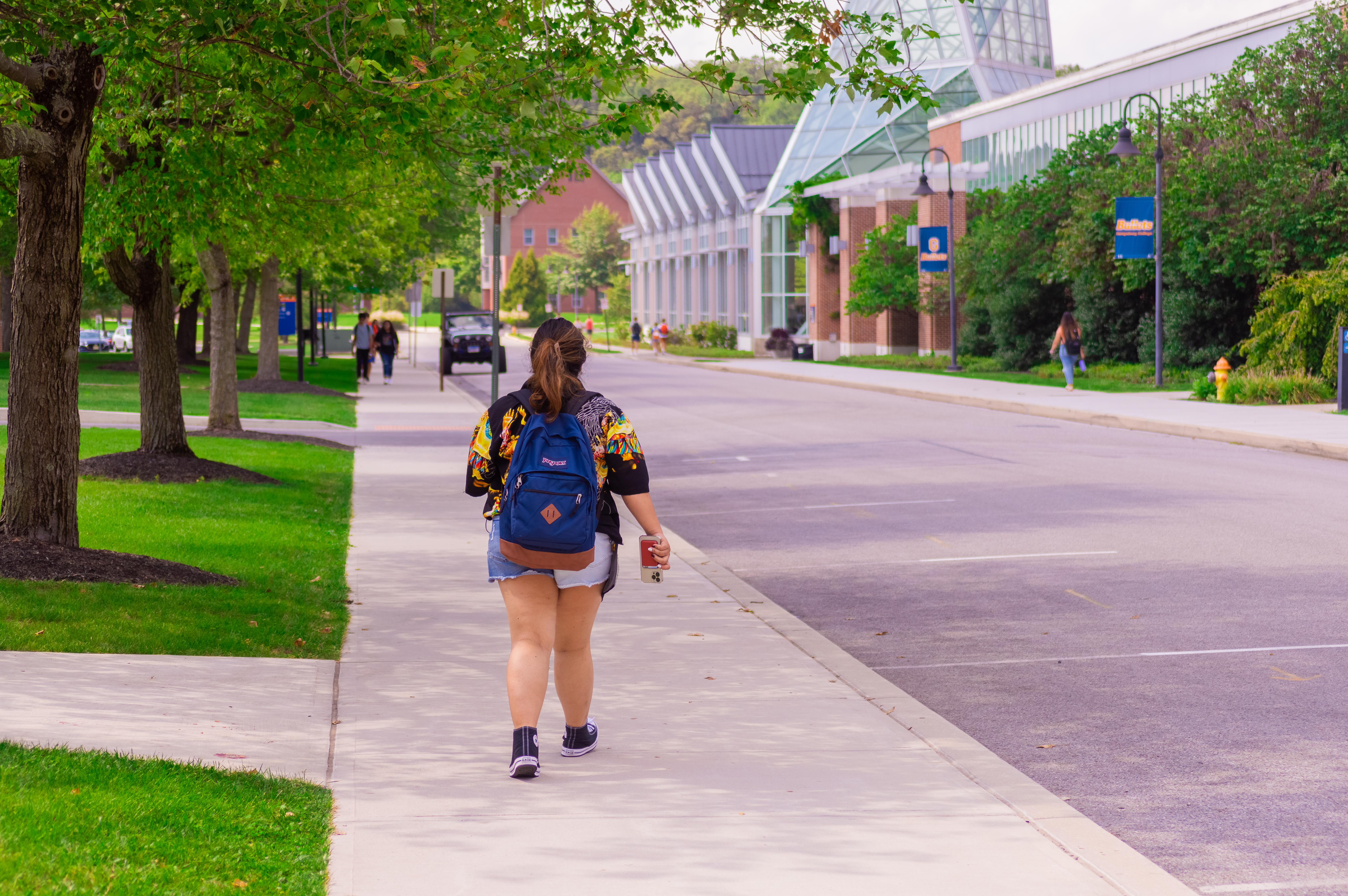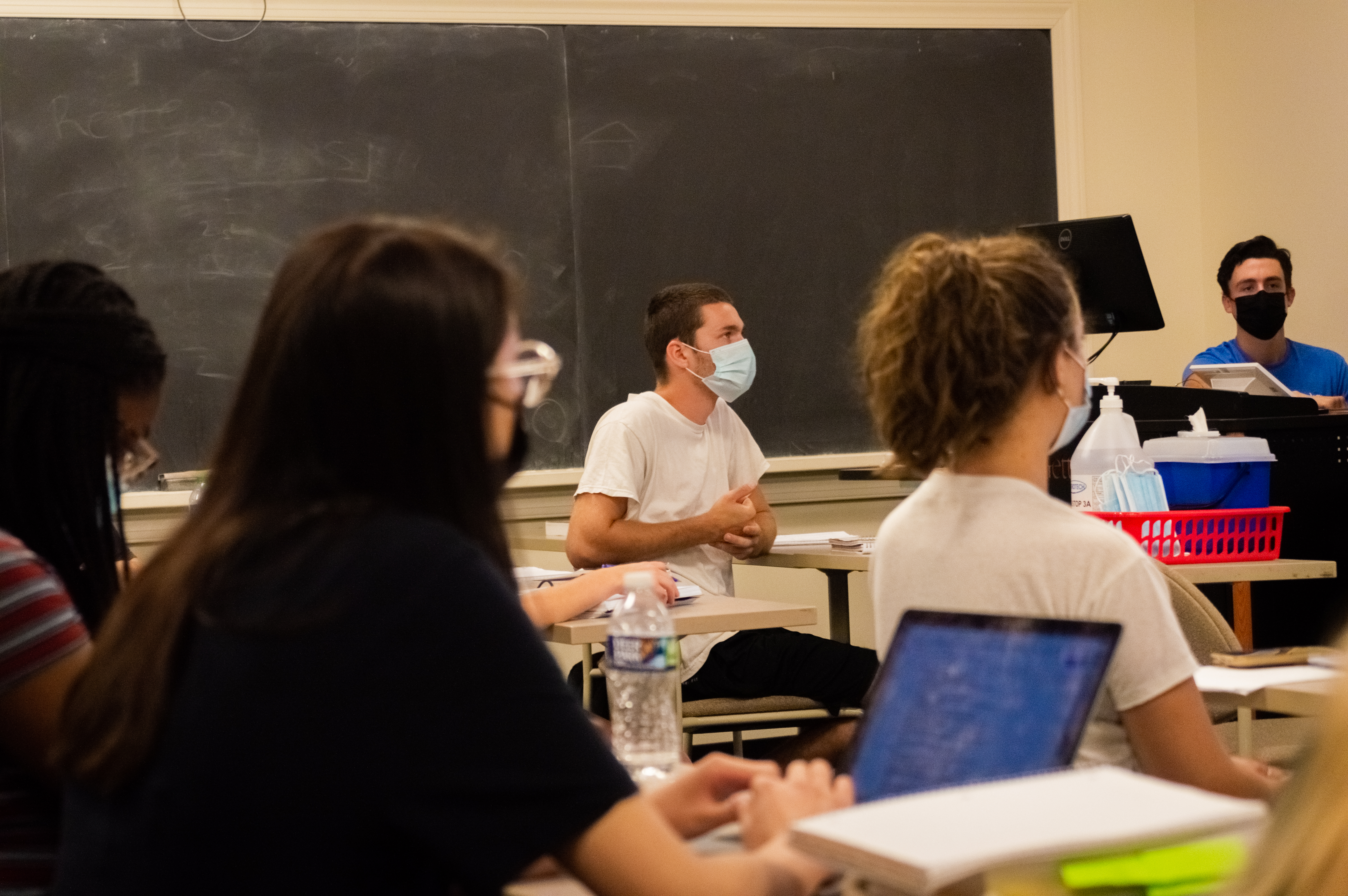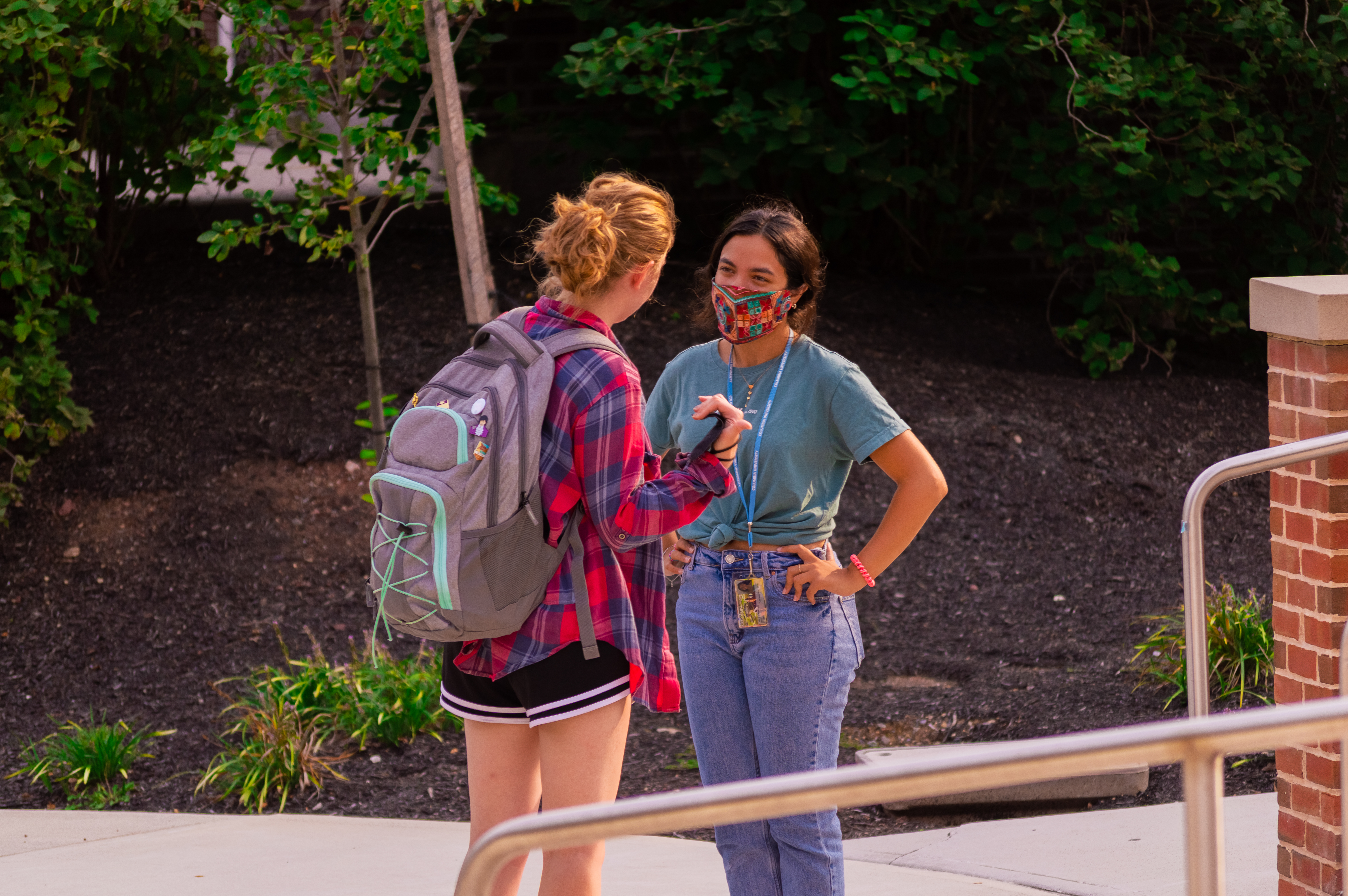By Nicole DeJacimo, Managing Editor and Katie Oglesby, Magazine Editor
Following the spring 2021 semester and the announcement that the fall semester would be fully in-person, President Bob Iuliano emailed the rising sophomore, junior, and senior classes with class-specific notes about the path their education would take over their next years on campus in what he anticipated would be “far more traditional in nature.”
Institutions of higher education across the nation, including Gettysburg College, face a new challenge: how does a campus with a disconnected community welcome a new class of students and return to normal?
Few students spent time on campus before the pandemic, many spent multiple semesters online, and none have had a consistent college experience. According to the email President Iuliano sent over the summer to the class of 2022, “Each class will count on you to apply your many talents to make this campus and new academic year as vibrant and joyous as we all know it can be.”
In a Forbes article about the changes to higher education this fall, education reporter Brian Busteed finds that the demand for normal could be challenging, “Let’s hope it is not the case, but there’s reason to believe this fall could be one of the wildest and most worrisome ever with a surge in binge drinking and alcohol-related sexual assaults combined with substantial mental health issues (which were already growing and have been further exacerbated by the pandemic).”
As Tom Cassara ’23 put it: “[Normal] means being able to experience Gettysburg for what it is, without a pandemic’s lens obstructing your view.”
Most of the problems the campus faced in a pre-pandemic world are still apparent: printing and the desire to go paperless, low wages for student workers, sustainability efforts, and the divide between Greek and non-Greek students.
“[Normal] means being able to experience Gettysburg for what it is, without a pandemic obstructing your view.” -Tom Cassara ’23
“I think the division between Greek Life and non-Greek students should stay in the past,” said Cassara. “With the hope of normalcy for this semester comes the resurgence of Greek activities. With my position in Greek life and in student leadership, I hope to mend that gap in the wake of the pandemic. We’ve all been so divided in recent memory, stuck inside fearing what the next day might bring. That needn’t linger beyond the pandemic if we prioritize unity and love.
President Iuliano also mentioned that he is worried about the underclassmen transitioning to a normal college experience after many spent the last part of high school and for some, the beginning of college, virtually. Many seniors, including Student Senate President Syd Quan ’22 and Black Student Union President Britney Brunache ’22, expressed the pressure to aid in that transition, as leaders for the first-years and the sophomores. Others are focusing on graduating, applying to graduate and law schools, and maintaining their mental health after the tumultuous year and a half.
Another “normal” part of Gettysburg College was taking on numerous extracurriculars and on-campus jobs on top of full course loads.
“I don’t think I have ever met a student at Gettysburg who is just one major,” said Brunache. “Everyone has a minor or is a double major or has a double minor.”
Despite Brunache’s worries of students overworking themselves, she herself carries a heavy workload. As a double major in psychology and theatre arts, she also is the president of the Black Student Union, the campus representative for Teach For America, and the secretary for the Owl & Nightingale Players.
In his email to the class of 2023, President Iuliano recognized that the junior class has had a particularly unique experience at Gettysburg, with only one semester of a fully “normal” college education.
“Perhaps more than any other class, your college experience has been profoundly shaped by the global pandemic, and the many health and safety precautions it has necessitated over these past three semesters,” he said. “I recognize how difficult this has been for you. Thank you for your commitment to keeping our community safe during this challenging time in our history, and for your desire and ingenuity to make the very most of the circumstances we have confronted.”
Co-manager for the CUB information desk, Meghan Clark ‘23 explained that the experience of being on campus during the hybrid semesters helped her grow as a student and a person, “I think having this experience enabled me to better understand campus and live independently,” she said.
She was thankful to be able to stay on campus last year, but what she really missed was the sense of community. Now, students can visit professors in person, see their classmates in the dining halls, and live among the orange and blue.
Part of maintaining that healthy community is respecting everyone’s mental health capacities, and Clark emphasized the need for mental health days every semester instead of just during the height of the pandemic.
“We all need breaks, and this administration has put us all through the wringer,” said Clark. “Now that we can be together, there just needs to be mutual respect for everyone’s mental capacities.”
Other students also emphasized the need for mental health days, in addition to flexibility with class attendance to allow students to stay home when they are sick. For the sophomores, this is the only kind of college flexibility they know.
While juniors and seniors have some time on campus as a sort of baseline for college normalcy, first-years and sophomores struggle to find their own.
Quan said while she believes the administration acknowledges that the transition will be difficult, she wishes that they gave more guidance.
Over the past year, approximately ten administrators resigned or retired, leaving many openings and new hires to train. All industries are finding that the high turnover causes more instability. This means fewer people in the administration who are able to help the college transition back into in-person learning.
“Now that we can be together, there just needs to be mutual respect for everyone’s mental capacities.” -Meghan Clark ’23
A spring study from Fidelity, a financial services company, found that 55 percent of higher education faculty “seriously considered changing careers or retiring early,” due to growing burnout. The National Student Clearinghouse Research Center found similar trends in retention rates for college and university students across the country. National retention rates dropped .7 percent, the largest fall since the NSCRC began following these trends in 2009.
Likewise, the retention rate of the class of 2023 at Gettysburg dropped significantly from the fall of 2020 to the fall of 2021. According to the Director of Institutional Analysis Suhua Dong, retention dropped from 91 to 83 percent.
The class of 2021’s retention rate as of fall 2019 (their sophomore year) was 91.3 percent and in fall of 2020 (their junior year) was 84.9 percent. This was only a 6.3 percent drop in retention over the course of one academic year whereas the class of 2023 experienced an 8 percent drop in retention during the hybrid online and in-person academic year.
The class of 2025 experienced relevant statistical changes as well. According to Director of Admissions Gail Sweezy, 30 students deferred enrollment, usually to take a gap year, although some of those accepted during the 2019-2020 application process may not end up attending the College at all. The number of students that defer is usually around ten students.
This increase in the difference of enrollment continued with the 2020-21 application process, with 24 students deferring enrollment into the class of 2025. Sweezy noted that “it is safe to say that behavior changed as a result of the pandemic.”
Unlike the upperclassmen and many of the sophomores, the first-year class has not been able to experience even a pandemic Gettysburg semester.
“This is my first year, so I didn’t know what to expect,” said Luca España ’25. “I’ve seen hundreds of movies that take place [at college], so I’m just going through it and trying to get out of my room so I can socialize with people.”
Emma Blackman ’25 said, “I think post-pandemic Gettysburg will be more about students getting into the community, more opportunities and new ways of living. I also think it is more focused on academics because it is more rigorous than we’re used to after being on our laptops for the past year and a half.”
“I think what I’m experiencing now will become my new normal for the next four years.” -Ratul Pradhan ’25
As an international student from Nepal who also took a gap year, Ratul Pradhan ’25 had a more unique perspective, emphasizing that he didn’t want to take college classes through Zoom.
“Coming from a different country, college does not look like this,” he said. “You take classes, then come home. Coming to Gettysburg was about having lots of activities to do and spending all my time living here. I think what I’m experiencing now will become my new normal for the next four years.”
Regardless of the interruptions and changes to their college experience, every student interviewed said they were happy to be back on campus.
“I’m hoping to really see campus flourish again. It has been far too long since we as Gettysburgians had so much as a normal week let alone a normal semester or year,” Cassara said. “I miss the vibrant campus we once knew.”
Phoebe Doscher, Editor-in-Chief, and Alli Dayton, News Editor contributed to this report.
This article originally appeared on pages 4–6 of the September 24, 2021 edition of The Gettysburgian’s magazine.




